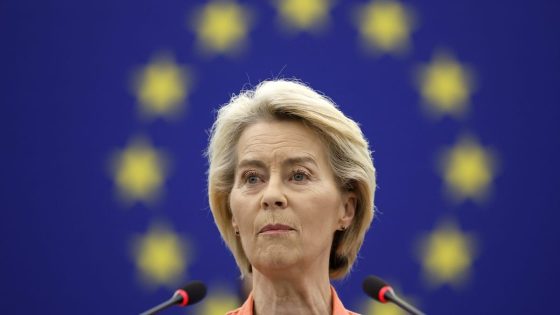Ursula von der Leyen’s recent statements in the European Parliament have reignited debates surrounding vaccine contracts and transparency. On July 7, 2025, she defended her Commission’s actions amid accusations of unaccountability related to the Pfizergate scandal.
- von der Leyen consulted vaccine producers and experts
- Transparency activists criticized the Commission's decisions
- Allegations of inappropriate contracts dismissed by von der Leyen
- No-confidence debate initiated by right-wing MEP
- Contract negotiations involved all EU member states
- Details of contracts remain undisclosed to the public
In her address, von der Leyen emphasized that she consulted with top vaccine producers and leading epidemiologists, asserting that the contracts were in the best interest of Europe. However, critics argue that the lack of transparency raises serious questions about the decision-making process.
As the first no-confidence debate for a Commission president since 2014 unfolds, the implications for EU governance are significant. Will this controversy affect public trust in European institutions?
The ongoing scrutiny of von der Leyen’s leadership raises critical questions about transparency in public health decisions. How can governments ensure accountability while navigating complex negotiations? Consider these points:
- Transparency fosters public trust in government actions.
- Clear communication is essential during health crises.
- Stakeholder engagement can mitigate backlash.
As the EU navigates these challenges, it’s crucial for leaders to prioritize transparency and accountability to maintain public confidence in their decisions.

































